Cheat Sheet: Central Council of Ministers | Indian Polity for UPSC CSE PDF Download
Introduction
This chapter explains the Council of Ministers, which is the main group running India’s government, led by the Prime Minister. It covers the rules in the Constitution, what the Council does, and how it works with the President and Parliament.
Rules in the Constitution
The Constitution has basic rules about the Council of Ministers in Articles 74, 75, 77, 78, and 88. These rules explain who the Council is, how it’s formed, and what it does.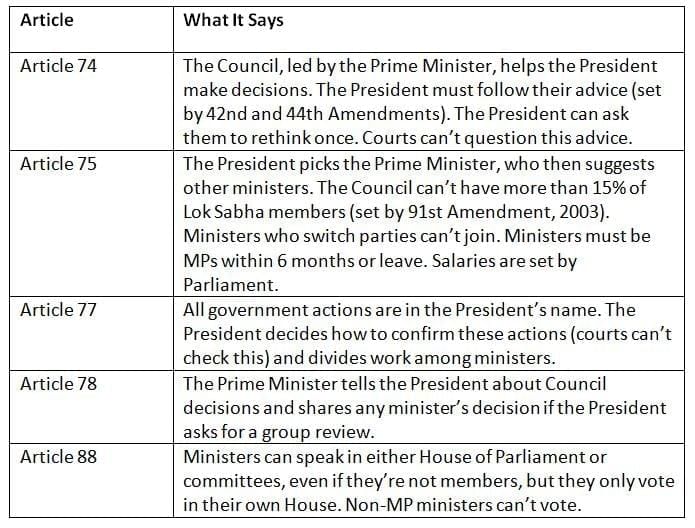
Key Points:
- The Council’s advice is final for the President, so elected leaders control decisions.
- The Council’s size is limited to keep it manageable.
- Ministers connect the government and Parliament by speaking in both Houses.
What the Council’s Advice Means
The Council’s advice to the President is secret, final, and protected by the Constitution. Court cases have made this clear.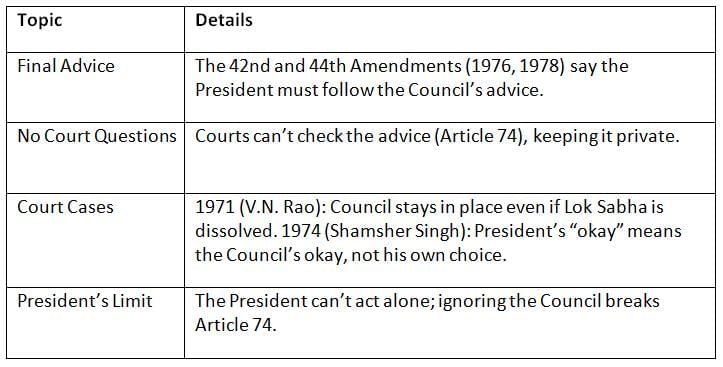
Key Points:
- The Council’s advice runs the government, not the President’s own ideas.
- Courts keep the advice secret and final.
Choosing Ministers, Their Oath, and Pay
Ministers are picked, take promises, and get paid based on clear rules to ensure they work honestly.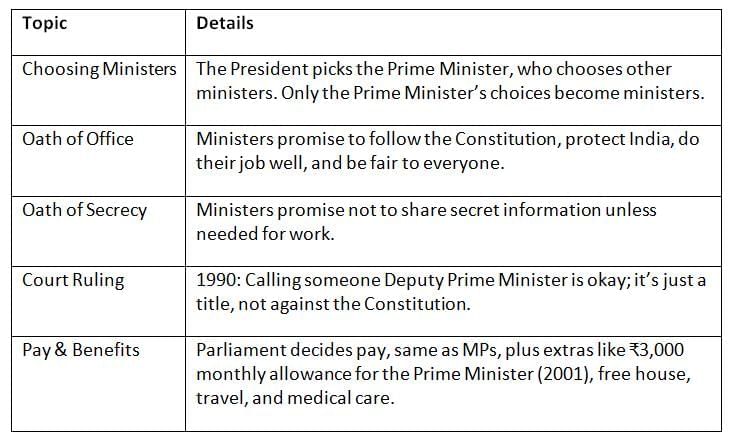
Key Points:
- The Prime Minister decides who joins the Council, keeping it united.
- Promises ensure ministers are honest and keep secrets.
- Pay supports their work without being too fancy.
Ministers’ Duties
Ministers answer to Parliament as a team and to the President individually, balancing group work with personal accountability.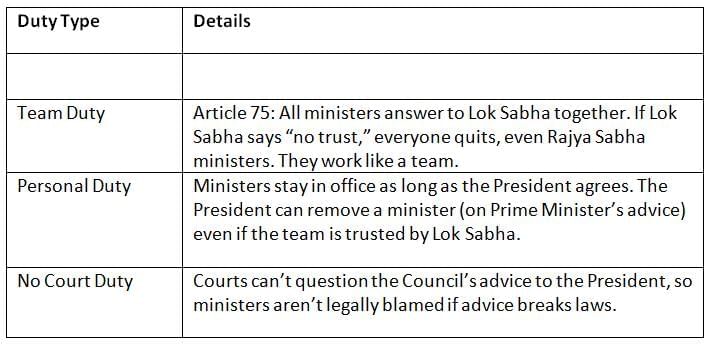
Key Points:
- Team duty keeps ministers united and answerable to Parliament.
- Personal duty lets the Prime Minister remove weak ministers.
- Court protection keeps advice private.
Who’s in the Council of Ministers
The Council has different types of ministers with specific jobs, making sure the government runs smoothly.
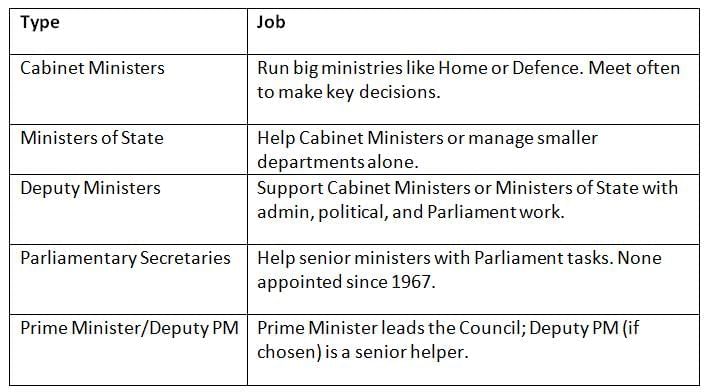
Key Points:
- Different types of ministers handle different tasks.
- Cabinet Ministers make the big decisions.
- No Parliamentary Secretaries since 1967 keeps the Council simpler.
Council of Ministers vs. Cabinet
The Council of Ministers and Cabinet are different, even though people mix them up. They have different members and jobs.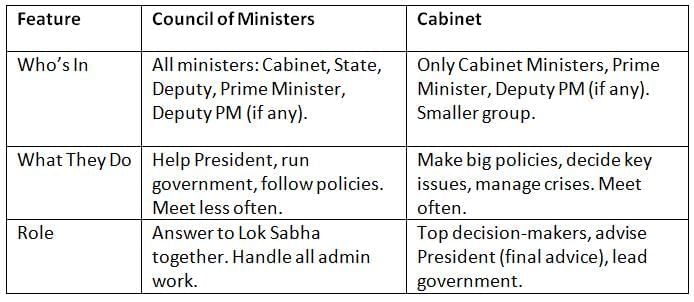
Key Points:
- The Cabinet is a small, powerful part of the Council.
- The Council covers all government work, while the Cabinet focuses on big choices.
What the Cabinet Does
The Cabinet is the top group making big decisions, from policies to handling emergencies.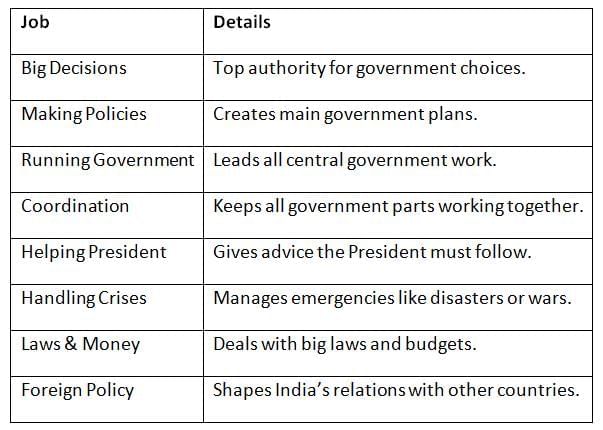
Key Points:
- The Cabinet leads on policies, crises, and foreign affairs.
- Its advice to the President is final, making it very powerful.
What Experts Say About the Cabinet
Experts use examples to show how important the Cabinet is, and their ideas apply to India too.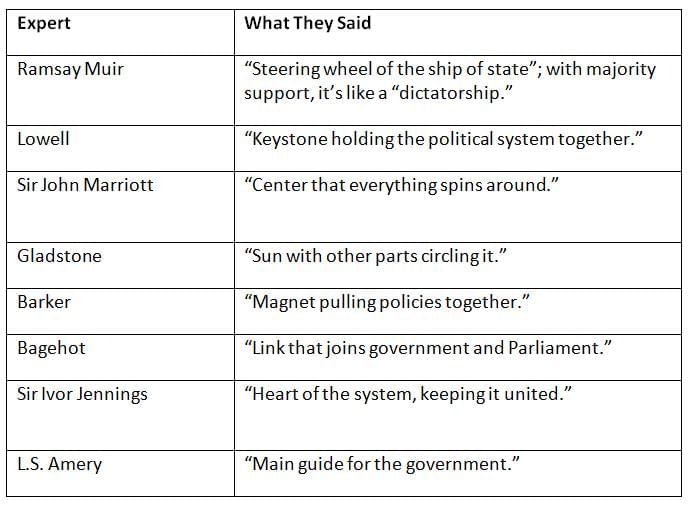
Key Points:
- Experts compare the Cabinet to a leader or center of the government.
- Muir’s “dictatorship” shows its power when it has strong support.
Kitchen Cabinet
The Kitchen Cabinet is a small, unofficial group of the Prime Minister’s close advisors who help make big decisions, sometimes more than the formal Cabinet.
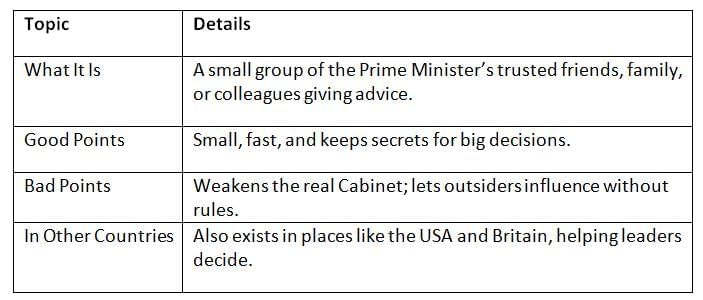
Key Points:
- The Kitchen Cabinet helps the Prime Minister act quickly but can skip proper steps.
- It’s common worldwide but raises questions about fairness.
Timeline of Important Events
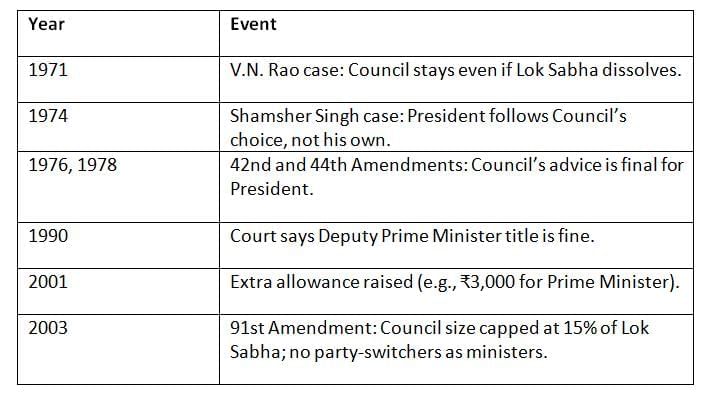
Conclusion
This chapter shows how the Council of Ministers, led by the Prime Minister, runs India’s government. It explains the rules, jobs, and differences between the Council and the Cabinet, making it clear why the Council is so important. Knowing this helps understand how India’s government works smoothly under its Constitution.
|
142 videos|777 docs|203 tests
|
FAQs on Cheat Sheet: Central Council of Ministers - Indian Polity for UPSC CSE
| 1. What are the key rules regarding the Council of Ministers as stated in the Constitution? |  |
| 2. What roles and responsibilities do ministers have in the Council of Ministers? |  |
| 3. How does the Cabinet differ from the broader Council of Ministers? |  |
| 4. What is a Kitchen Cabinet, and how does it function within the government structure? |  |
| 5. What insights do experts generally provide regarding the functioning and importance of the Cabinet? |  |
















